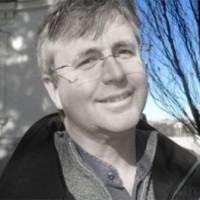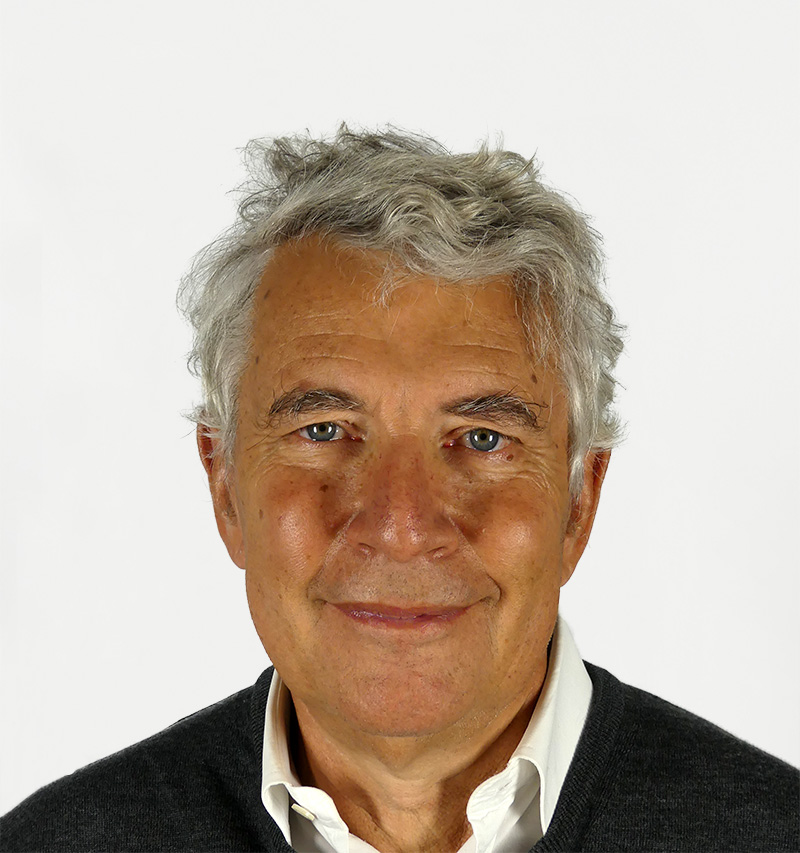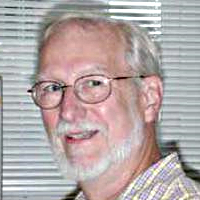Victor S. Gurfinkel was born on April 2, 1922, in the small town of Okny, Ukraine. His father was a doctor, and Victor was the youngest of four siblings. In 1939, after graduating from high school, he enrolled into Medical College in Odessa, but in 1941, after the start of the WWII, the school was evacuated, and he continued his studies in Kirgizia, graduating in 1944. After finishing medical school, Victor immediately joined the army on the Northern Front (Karelia), but soon was transferred to the Belarussian Front, in charge of blood transfusion services for the 19th Army. He ended the war in Poland, in charge of the Soviet Army lab that worked with amputee soldiers to provide them with artificial limbs. After leaving the army, Victor continued his prosthetic development work at the Institute of Prosthetic Appliances in Moscow, where he started his research career working with Professor Nicolai Bernstein. In 1950, he completed his PhD, and in 1961, he received a D.Sc in biophysics. For his contribution to research in prosthetic development he was awarded the State Prize in 1970.
Victor Gurfinkel’s scientific carrier spanned more than 70 years. Each era of Victor’s research career brought forth new and insightful knowledge that influenced thinking in his field. He was inspired by the thoughts of N. Bernstein, which he enriched and, thereby, contributed to a revolution in Western physiology that had been dominated by reflexology. Much of his research involved the study of the internal representation of the body and external space in the human brain, to understand how the brain forms the models on the basis of which motor behavior is realized. His concept of the role of the “body schema” in generating the physical configurations of the body for action, in an anticipatory process, was a key concept not only for modern physiology but also for a completely novel approach to many pathologies. His main scientific interest was the control of posture and movement in humans. He was a pioneer in the use of stabilography for the study of human upright posture. He had a particular interest in the normal regulation of and disturbances to muscle tone and how these disturbances affect movement performance. He was also interested in the biophysical mechanisms of skeletal muscle contraction. His studies of postural regulation led him to conclude that the motor system is not reduced to a set of simple postural reflexes. He was also involved in the development of the principles of adaptive control of robots and manipulators, the development of modular torque sensors and other devices for processing this sensor information in robots, in particular, for an ambulating six-legged walking device. He contributed to several space flights in the MIR station with the French CNES. In 1981–1983, Victor helped guide a large research project (“Pose”), performed aboard the Salyut-7 orbital station to investigate the physiological mechanisms of human adaptation to microgravity and spatial orientation during spaceflight. He and his wife Irene moved to Portland, Oregon in the US where he continued to do research and train students during the early 1990s. Over his career, he was the author of 3 monographs and more than 300 scientific publications in the field of physiology, biophysics, and robotics.
The long and fruitful career of Victor Gurfinkel is continued in the works of his students and followers—representatives of the scientific school he created. Many of them became leaders in their own fields and founders in their own scientific areas, but Victor Gurfinkel’s concepts continue to serve as a source of fruitful ideas for them. He was a deep thinker and produced pioneering ideas until his last days. He was a master and friend of many of us. We will miss his inspiration and wisdom. We can commemorate his memory in the only way he would approve—by continuing his work.
https://link.springer.com/article/10.1007/s00221-020-05785-z
Viktor Gurfinkel was an inspiration to me and one of my scientific “heroes”
 By Joe McIntyre (DR-CNRS)
By Joe McIntyre (DR-CNRS)
I first met Viktor while I was still a graduate student at MIT in or around 1988. He was invited to give a lecture in the Department of Brain and Cognitive Science. As a student of computational motor control, which combined studies of human physiology with the tenets of robotics, I could only marvel at a research program that combined both of these, plus astronauts and spaceflight! In a brief encounter with him following his talk I expressed an interest in working in his lab, a proposal that was met by him with the warmest of responses. Unfortunately, it was not to be, as learning Russian in my final year of doctoral studies, a seemingly practical requirement for fellowships at the time, did not seem to me the best of ideas. Imagine my surprise when several years later, while visiting the laboratory of Prof. Alain Berthoz, I was offered the possibility to work with Victor’s lab on French-Russian experiments onboard the Mir space station. I jumped at the chance and was rewarded with years of inspiring scientific discovery as a result.
Victor demonstrated to me what I feel is the essence of scientific discovery from my very first visit to his laboratories at the IPPI (IITP) in Moscow. His experiments, with his colleagues, demonstrating the interactions between vestibular signals and proprioceptive information from the neck and arm remain my favorite of all time. To feel how the CNS could be tricked into acting as if the head was turning, even when I knew consciously knows that this was not the case, blew my mind. And this not just at the level of a conscious illusion. To see compensatory eye motions consistent with this “belief” was to me the defining manifestation of multisensory integration for even the lowest-level, automatic responses of the human sensorimotor apparatus. Not only that, the fact that these researchers were able to achieve such a clear demonstration of this phenomenon imparted in me the understanding that clever experimentation is the key to scientific advance. In all my work since, I have strived to meet this ideal.
I also have warm feelings about my personal interactions with Viktor and the people around him, which did not occur as often as I would have liked over the many years since those first encounters. My first trip to Moscow was an adventure, with my flight being deviated to Helsinki and me arriving well after midnight at Sheremetyevo airport. I remember Viktor’s son and soon to be my friend, Genia, futilely trying to signal to the diver of my taxi as we rushed by in a snowstorm, then finally backtracking to the right address to be welcomed into the home of Viktor and his wife Irene, and after a bit of sleep, to my first visit to Lab 9. Numerous visits and countless shared cups of tea amongst these colleagues and friends (Mark, Yura I, Yura L, Kostia), were to follow.
Even if I saw little of Viktor over these last years, I will miss his presence. I will continue to admire his scientific abilities and capacity for insight into the workings of the human nervous system. He leaves a legacy not only of his own work, but in the work of those of us that he inspired along the way.
 By Pierre-Paul Vidal (Centre Giovanni Alfonso Borelli, Université de Paris)
By Pierre-Paul Vidal (Centre Giovanni Alfonso Borelli, Université de Paris)
I was 28 or so, I was a young MD and I was working with Alain Berthoz and Lou Nashner who was visiting Paris. We were working the three of us of what will become the equitest. A regular visitor was Victor Gurfinkel in the lab. He was extremely kind and extremely impressing because he had very unorthodox innovative views on motor control at-large and postural control in particular. It was absolutely fascinating to discuss with him specially at the age you need role models to get properly trained. And from there we meet each other in Congress and in labs and it was always inspiring to chat with him while I was growing up in science.
My only regret was that, because of the political limitations at that time, it was difficult to see him in our occidental countries as much as I would have wished. In addition for the same reason he could not publish in the best occidental journals and was unable to attend some major Congress. In that context, at least that was my view at the time of my somewhat rebellious frame of mind in the eighties, I regretted that some colleagues were publicizing Victor ideas and concepts without fully acknowledging their sources.
So to these days, rightly or wrongly, I think that this wonderful scientist who was so inspiring to me and that I admire so much, didn’t get all the recognition he deserved. I hope that this little message will give a tribute to is very deep originality and pioneering views on motor control.
 By Richard Poppele (University of Minneapolis, USA)
By Richard Poppele (University of Minneapolis, USA)
Victor was invited to visit my University in Minneapolis by Carlo Terzuolo in about 1970. This is when I first met him and I remember him as a kind and friendly man with many interests. It was my pleasure to meet with him on several occasions during his week-long visit. Although it was long ago, those meetings left a profound impression on me that shaped my entire scientific career.
I was trained in a very reductionist approach to understanding motor control, but Victor awakened me to a holistic approach focused on motor behavior. This led to my understanding of proprioception in terms of whole limb or whole body geometry and movements as opposed to the behavior of single receptors in isolated muscles.
I am continually grateful to Victor who was a source of inspiration for me and for many others in this field.

